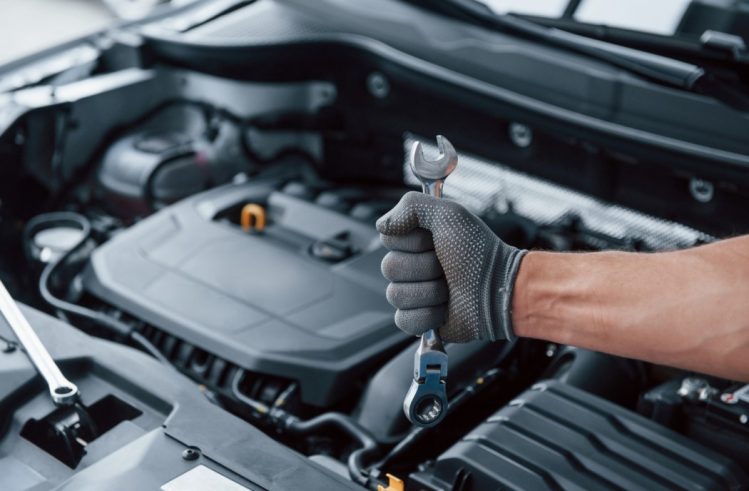Cost-Efficiency of Hybrid Car Batteries Explained
In today’s automotive landscape, the push towards sustainability and energy efficiency has led to the widespread adoption of hybrid vehicles. At the heart of these vehicles lies the hybrid car battery, a critical component that determines not only the performance but also the cost-effectiveness of these eco-friendly rides.
Introduction to Hybrid Car Batteries
Hybrid car batteries serve as the power source for electric motors in hybrid vehicles, supplementing or replacing the traditional internal combustion engine. These batteries store energy generated through regenerative braking and engine power, providing an additional boost when needed and allowing the vehicle to operate more efficiently, with reduced emissions compared to conventional vehicles.
Types of Hybrid Car Batteries
Hybrid vehicles come equipped with different types of batteries, each offering distinct characteristics and performance capabilities. Understanding the differences between these battery types is essential for consumers seeking the most suitable hybrid vehicle for their needs. The two primary types of hybrid car batteries in use today are Nickel-Metal Hydride (NiMH) batteries and Lithium-ion (Li-ion) batteries.
Nickel-Metal Hydride (NiMH) Batteries
For decades, Nickel-Metal Hydride (NiMH) batteries have served as a cornerstone in the hybrid vehicle industry. These batteries utilize a combination of nickel oxide hydroxide and metal hydride as electrodes, along with potassium hydroxide as the electrolyte. NiMH batteries are well-known for their reliability, durability, and affordability, rendering them a favored option among automakers.
A primary benefit of NiMH batteries is their comparatively lower cost in comparison to alternative battery technologies. Additionally, NiMH batteries boast a proven track record of performance and safety, providing peace of mind to consumers concerned about reliability.
Lithium-ion (Li-ion) Batteries
Lithium-ion (Li-ion) batteries represent the latest advancements in hybrid car battery technology, offering higher energy density, lighter weight, and improved performance compared to NiMH batteries. Li-ion batteries utilize lithium cobalt oxide, lithium iron phosphate, or other lithium-based compounds as electrodes, with a liquid or solid electrolyte facilitating ion movement.
A key benefit of Li-ion batteries lies in their superior energy density, enabling more efficient energy storage within a compact and lightweight structure. This results in extended driving ranges and enhanced fuel efficiency for hybrid vehicles utilizing Li-ion batteries.
Cost-Efficiency in Hybrid Car Batteries
When considering hybrid vehicles, one of the critical factors for consumers is the cost-efficiency of their batteries. Here are few points discussed below.
Initial Cost Comparison
The initial price of hybrid car batteries fluctuates depending on the type and technology employed. Generally, Lithium-ion (Li-ion) batteries tend to have a higher upfront cost compared to Nickel-Metal hydrogen (NiMH) batteries due to their advanced technology and higher energy density. However, this initial investment needs to be evaluated in the context of long-term cost savings.
Long-Term Cost Analysis
Although Li-ion batteries might entail a higher initial investment, their extended lifespan and enhanced energy efficiency frequently result in substantial savings throughout the vehicle’s lifetime. Factors such as reduced fuel consumption and lower maintenance costs contribute to the overall cost-efficiency of Li-ion batteries in hybrid vehicles.
Factors Affecting Cost-Efficiency
Understanding the factors affecting cost-efficiency is essential for evaluating the economic viability of hybrid car batteries and making informed purchasing decisions.
Battery Lifespan
The lifespan of hybrid car batteries plays a crucial role in determining their cost-efficiency Li-ion batteries generally offer a lengthier lifespan than NiMH batteries, thereby offering greater value over time.
Maintenance and Replacement Costs
Hybrid car batteries need very little maintenance in comparison to traditional internal combustion engines. However, in the event of battery degradation or failure, replacement costs can impact the overall cost-efficiency of hybrid vehicles.
Fuel Savings
One of the main advantages of hybrid vehicles is their lower fuel consumption compared to conventional vehicles. The integration of efficient hybrid car batteries contributes to significant fuel savings over the lifetime of the vehicle, enhancing its overall cost-efficiency.
Advantages of Cost-Efficient Hybrid Car Batteries

Exploring the benefits of cost-efficient hybrid car batteries reveals their significant contributions to environmental sustainability, economic savings for consumers, and technological advancements in the automotive industry.
Environmental Benefits
The adoption of cost-efficient hybrid car batteries contributes to a reduction in greenhouse gas emissions and dependence on fossil fuels, promoting environmental sustainability and mitigating climate change.
Economic Savings for Consumers
Cost-efficient hybrid car batteries translate into tangible economic savings for consumers, both in terms of reduced fuel expenses and lower maintenance costs, making hybrid vehicles a financially viable option for environmentally conscious individuals.
Technological Advancements
The pursuit of cost-efficiency in hybrid car batteries drives technological innovations in battery technology, leading to improved performance, increased energy density, and enhanced reliability, further bolstering the appeal of hybrid vehicles in the market.
Challenges and Limitations
Recycling and Disposal Concerns
While hybrid car batteries offer numerous advantages, their disposal at the end of their lifespan poses environmental challenges. It is essential to employ appropriate recycling and disposal methods to mitigate the environmental impact of hybrid vehicle batteries.
Technology Advancements Impacting Costs
The swift progression of technological advancements in battery technology could impact the cost-effectiveness of hybrid car batteries. While these advancements promise improved performance and efficiency, they may also entail higher initial costs.
Future Prospects
Emerging Battery Technologies
The outlook for hybrid car batteries appears promising as advanced battery technologies like solid-state batteries and lithium-sulfur batteries emerge, promising higher energy density, extended lifespan, and improved safety features.
Cost Reduction Strategies
Ongoing research and development efforts focus on cost-reduction strategies for hybrid car batteries, including improving manufacturing processes, optimizing battery materials, and streamlining supply chains, ultimately driving down costs and making hybrid vehicles more accessible to a wider audience.
FAQs (Frequently Asked Questions)
Q. Are hybrid car batteries more expensive to replace than conventional car batteries?
A. While hybrid car batteries may have a higher upfront cost, their longer lifespan often results in comparable or lower replacement costs over the lifetime of the vehicle.
Q. Do hybrid vehicles require specialized maintenance for their batteries?
A. Hybrid vehicles typically demand minimal maintenance for their batteries, yet it’s advisable to schedule regular inspections by skilled technicians to uphold optimal performance and longevity.
Q. Can hybrid car batteries be recycled?
A. Yes, hybrid car batteries can be recycled to recover valuable materials such as nickel, cobalt, and lithium. Recycling efforts are crucial for reducing environmental impact and preserving resources.
